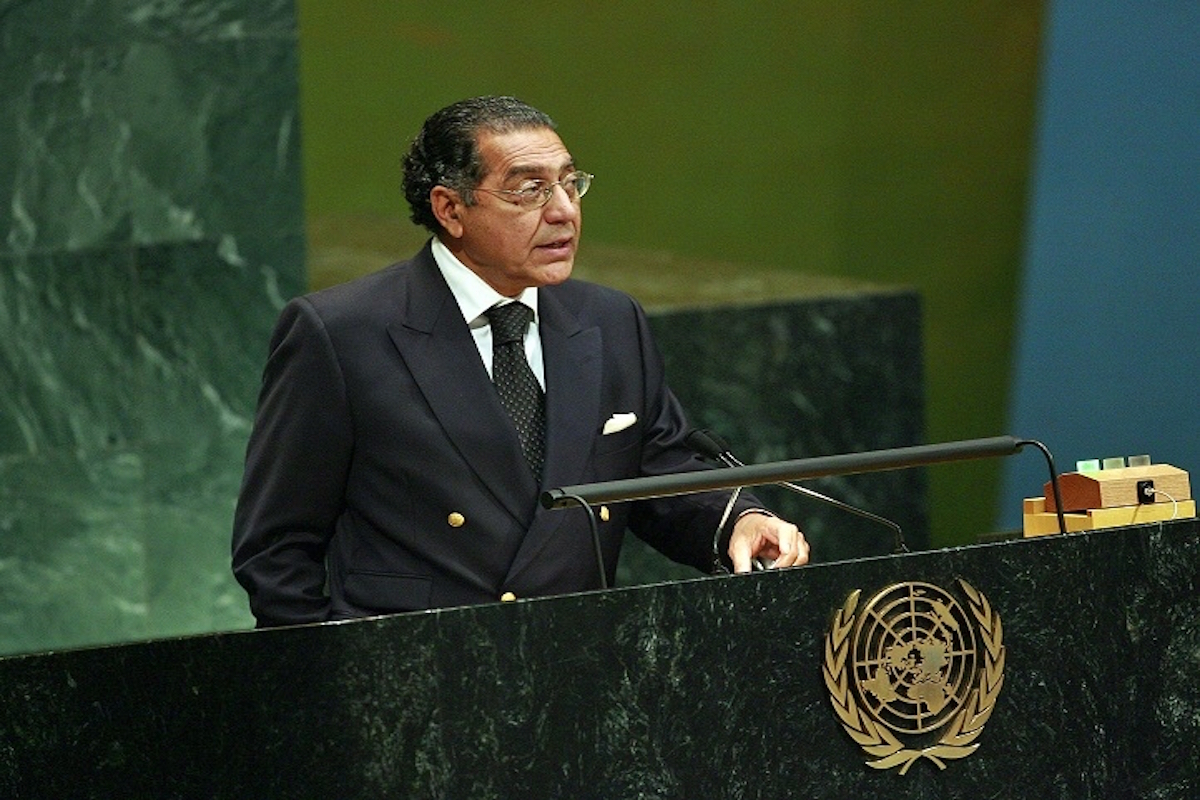India’s Permanent Representative T.S. Tirumurti has called out Pakistan’s “Pavlovian” response at the world body whenever India is mentioned, making it bring up its perceived grievances whatever matter is under discussion.
“I do not wish to waste the time of this Assembly by responding to the irrelevant and irresponsible remarks made by the representative of Pakistan, which has become ‘Pavlovian’ whenever India is mentioned,” Tirumurti said on Monday at a General Assembly session on Security Council reform.
Advertisement
“This is a forum for serious debate, not frivolous allegations,” Tirumurti said after Pakistan’s Permanent Representative Munir Akram launched an attack on India.
Pavlovian response is an irrational reaction to a psychological trigger originally observed in dogs by a Russian scientist, Ivan Pavlov. Having associated the sound of a bell with food, the dogs in his experiment were found to salivate whenever they heard a bell without connection to feeding.
Raking up Kashmir, Akram said India should not even hold the non-permanent Council seat for which it was elected with the votes of 184 members out of the 193 in the General Assembly and is set to assume in January.
He said his country and the group known as United for Consensus (UfC) opposed expanding the number of permanent members of the Security Council when reforming the body.
Akram said that India violated the Council resolution to hold a Kashmir plebiscite, while in fact Pakistan had refused to follow Council resolution 47 that ordered it to first withdraw its forces and other personnel from the area as a pre-condition.
He also spoke of the consequences of India withdrawing the area’s special status under the constitution and made the outlandish claim that India had waged 20 wars.
“This country has no qualification for membership of the Security Council, permanent or even non-permanent,” he said.
UfC, a group of about a dozen UN members, is led by Italy and includes countries like Turkey and Canada.
Attempts through the Intergovernmental Negotiations (IGN) process at the General Assembly to reform the “impaired organ” of the Council, which is stuck in the world of 1945, have stalled “because just a handful of countries don’t want us to proceed,” Tirumurti said referring to Pakistan and the UfC.
“They have stopped the IGN from progressing. They are using the IGN as a smoke-screen to stop themselves from being identified by paying lip-service to Security Council reform,” he said.
The UfC main tactic is to prevent the IGN from adopting a negotiating text on which to base the discussions by insisting on a Catch-22 condition that there should be consensus on reforms, while a consensus would not be possible without a negotiating text to arrive at a consensus.
“The conditions they are laying out are impossible to fulfil – which is full consensus of all member states,” Tirumurti said of the UfC position.
He said that the IGN, which has ambiguous and opaque procedures, should adopt the General Assembly’s rules of procedure to make its work transparent and on record.
Tirumurti said that during the General Assembly’s high-level debate in September heads of governments and nations reaffirmed their call for reforming the Council and it was time to take up their demand.
He recalled that at the meeting, “Prime Minister Modi, echoing the aspirations of over a billion of my fellow citizens, asked, ‘When will this reform-process ever reach its logical conclusion? The question that we are still asking here in IGN today is ‘when will the reform process ever begin?'”











